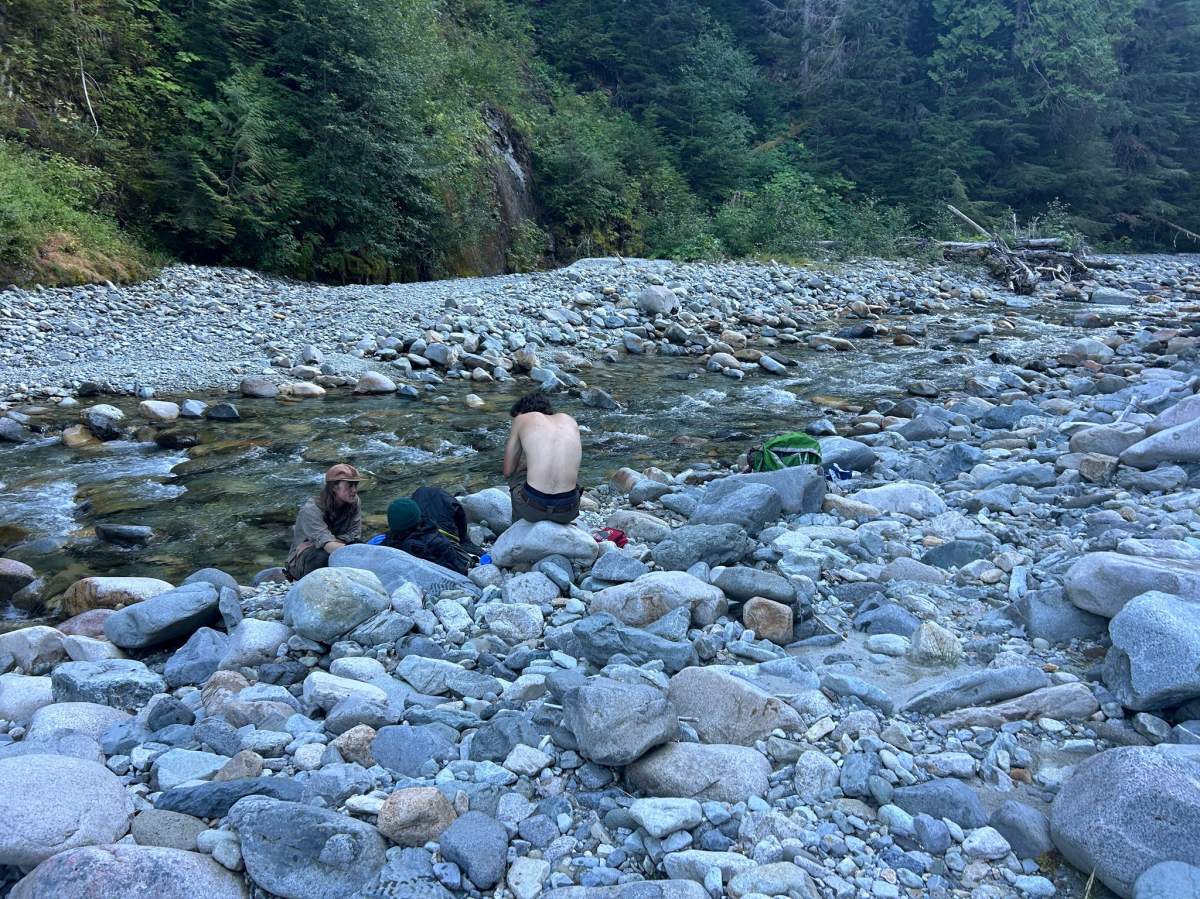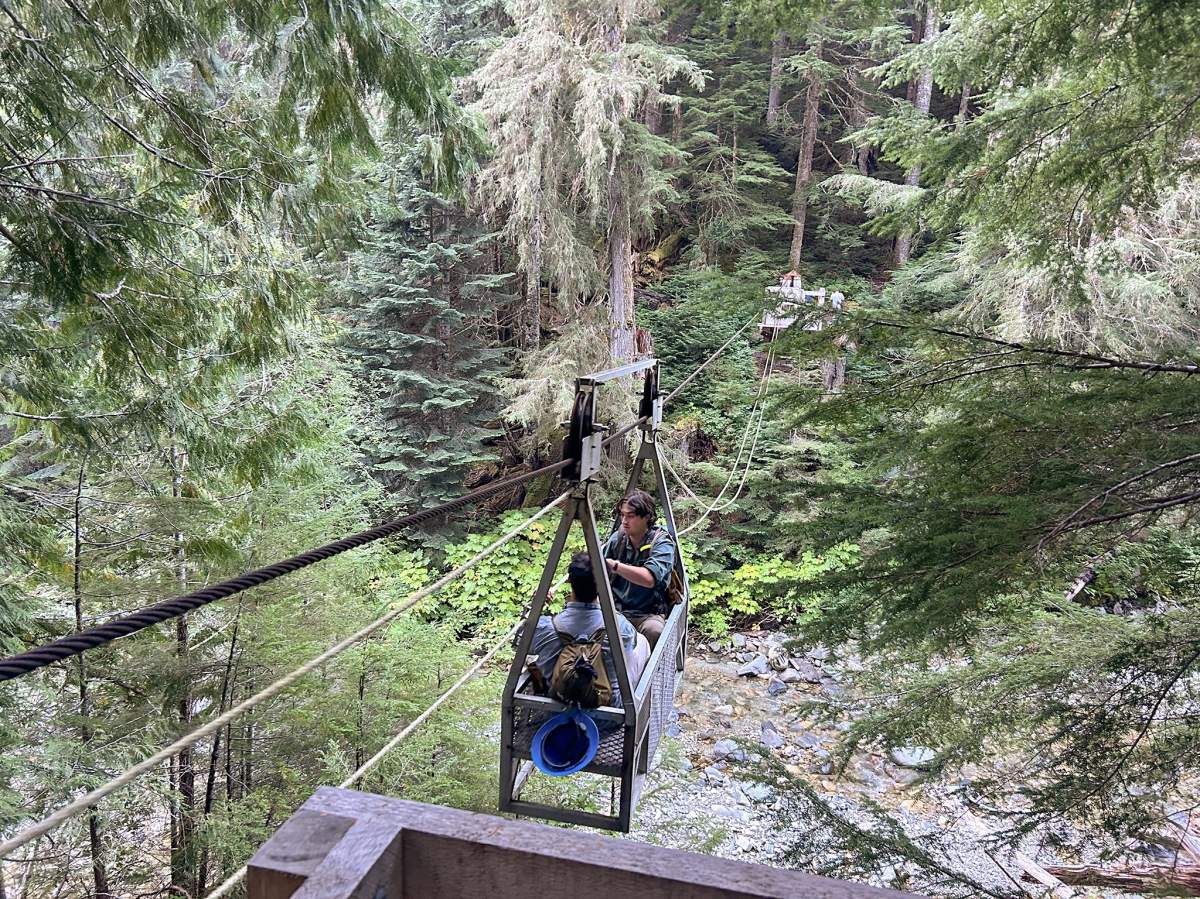A runner who became lost in the vast wilderness of Washington state for an entire month this summer is sharing his harrowing experience, saying he was vastly unprepared for the ordeal and close to death when he was eventually found.

Robert Schock, a 39-year-old ultrarunner, told People he set out on a 32-kilometre run in North Cascades National Park on July 31, accompanied by his dog and a small backpack with limited supplies.
“I’m not a hiker. I don’t put on backpacks and go out for multiple-day trips. I don’t know how to fish. I want to finish a course as fast as I can and come back home. So I had no shirt. I had a pair of shorts, I had (my dog) Freddy and a dog pan. These were the only items in my small backpack,” he said.
Schock told Cascadia News that he was feeling adventurous that day and in search of stunning views, which prompted him to use a cable car suspended over the Chilliwack River to pull himself across to the opposite bank.
But when he reached the other side, he became disoriented by the scenery, which had been altered by wildfires in recent years, and realized his phone had lost GPS service.
“When I got out there, the trail was no longer there,” Schock told People. “I was curious to know what happened to this trail and my curiosity kind of kept me going.”
On the second day, his phone died. But it wasn’t until the following day he realized he was hopelessly lost and began to worry.
At one point, he spotted a sign directing him to the Canada-U.S. border less than 32 kilometres away and decided to press on. But when his shoes got wet while trying to retrieve water from the river, he took them off to dry out and the river washed them away.
“My mind persisted in going north despite my injured feet,” he told Cascadia News of the beating his bare feet were taking in the rough terrain. “It was stupid, immature and amateur to keep going forward when I still had the energy to get back.”

Get daily National news
Meanwhile, Schock’s family began to worry. On Aug. 4, five days after he had hit the trail, his mother received a call from the local humane society, saying they had found his dog on a trail the previous day near the Chilliwack River.
Jan Thompson called police on Aug. 5 to report her son missing. That same day, the Whatcom County Sheriff’s Office called her back, saying they had found Schock’s vehicle at the trailhead.
“The fact that Rob left his car window halfway down on the passenger side and his wallet in the car led the deputy to believe Rob went into the wilderness with no intention of coming out. I knew that wasn’t the case,” she told People. “Honestly, I never felt he had perished in the park despite the odds.”
For the next several weeks, Schock made every effort to survive, taking over abandoned nesting grounds of bears, eating sour berries and at one point eating a large mushroom, which “just tasted like … (what) you would have on a pizza or something,” despite not knowing if it was safe to eat.
As he wandered in the forest, trying to find a way out, he saw a couple of helicopters circling and, at one point, heard a chainsaw buzzing. But his screams for help went unheard.
About halfway into the ordeal, he collapsed on a riverbank, incapacitated by pain and hunger, his legs no longer able to carry him. He says he slept during the day in the warm sun, but the nights were bitterly cold and he only had his backpack to protect his nearly naked body from icy rain and winds.
“I wasn’t screaming for help very much anymore,” he told People. “I was just doing it on occasion…. I was not doing very well.”
On Aug. 30, as he lay on the bank of the Chilliwack River, Schock says he lost control of his bowels and “really felt like I was close to death.”
He mustered his energy and let out one last scream for help, fearing he wouldn’t live to see the next day.
It was this final cry that finally got the attention of someone. Trail maintenance workers from the Pacific Northwest Trail Association (PNTA) were nearby, hiking back to their camp after a day of work, and heard Schock’s faint cry and made their way to him.
“One of the guys took his shirt off and gave it to me,” Schock told People of his rescue. “That guy who came and clothed me and very well saved my life. It is an understatement to say how truly thankful I am for those people to be there that day because it came pretty close to the finish line.”
In a blog post from the PNTA, detailing the rescue efforts of its crew that day, the organization wrote that Schock was “not well” when they found him.
“It is the belief of those who came to be involved in the rescue that Robert may have only had another day left in him before the outcome of his discovery would have been much more tragic,” Jeff Kish, executive director of the PNTA, wrote in the post.
The backcountry crew radioed for a helicopter, and eventually Schock was airlifted to hospital, where he spent about a month recovering and gaining back some of the 50 pounds he had lost.
“Many times I’ve placed myself in situations where I’d question if I’d ever make it back, and always did, usually through the aid of another who would come along and save me,” Schock told Cascadia Daily. “I had a cocky attitude about it. This time was different. I knew, based on where I was, that the likelihood of help was almost zero. I was ready to die out there.”
He said he has no intention of returning to the national park in the near future.











Comments